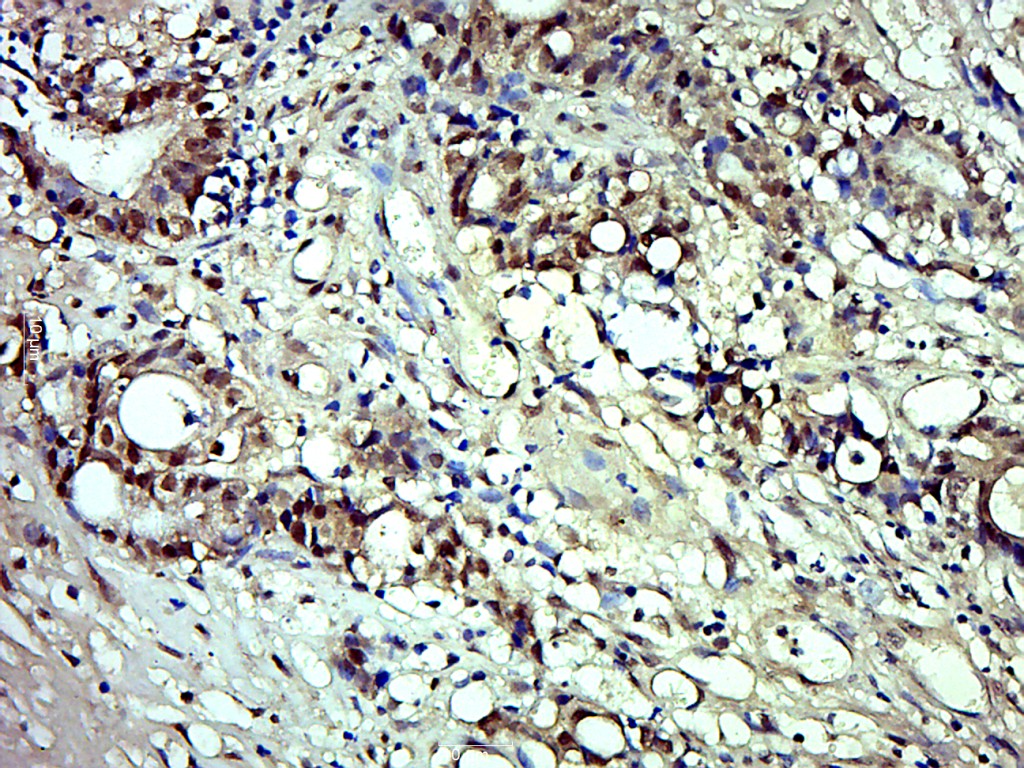MDM2 antibody [HDM2-323]
GTX10567
ApplicationsWestern Blot, ELISA
Product group Antibodies
ReactivityHuman, Mouse
TargetMDM2
Overview
- SupplierGeneTex
- Product NameMDM2 antibody [HDM2-323]
- Delivery Days Customer9
- Application Supplier NoteWB: 1-2 microg/ml. *Optimal dilutions/concentrations should be determined by the researcher.Not tested in other applications.
- ApplicationsWestern Blot, ELISA
- CertificationResearch Use Only
- ClonalityMonoclonal
- Clone IDHDM2-323
- Concentration2 mg/ml
- ConjugateUnconjugated
- Gene ID4193
- Target nameMDM2
- Target descriptionMDM2 proto-oncogene
- Target synonymsACTFS, HDMX, LSKB, hdm2, E3 ubiquitin-protein ligase Mdm2, MDM2 oncogene, E3 ubiquitin protein ligase, MDM2 proto-oncogene, E3 ubiquitin protein ligase, Mdm2, p53 E3 ubiquitin protein ligase homolog, Mdm2, transformed 3T3 cell double minute 2, p53 binding protein, double minute 2, human homolog of; p53-binding protein, oncoprotein Mdm2
- HostMouse
- IsotypeIgG2a
- Protein IDQ00987
- Protein NameE3 ubiquitin-protein ligase Mdm2
- Scientific DescriptionMDM2 is a nuclear phosphoprotein with an apparent molecular mass of 90 kD that forms a complex with the p53 tumor suppressor protein. Human MDM2 was identified as a homologous product of the murine double minute 2 gene (mdm2). The MDM2 gene enhances the tumorigenic potential of cells when it is overexpressed and encodes a putative transcription factor. Forming a tight complex with the p53 gene, the MDM2 oncogene can inhibit p53-mediated transactivation, MDM2 also binds to p53 protein. Inactivation of tumor suppressor genes leads to deregulated cell proliferation and is a key factor in human tumorigenesis. p53 can be subjected to negative regulation by the product of a single cellular protooncogene. The interference of binding to p53 prevents the interaction of MDM2 and its regulation of the transcriptional activity of p53 in vivo. Direct association of p53 with the cellular protein MDM2 results in ubiquitination and subsequent degradation of p53. MDM2-p53 complexes were preferentially found in S/G2M phases of the cell cycle. The MDM2 gene is alternatively spliced, producing 5 additional splice variant transcripts from the full length MDM2 gene. The alternatively spliced transcripts tend to be expressed in tumorigenic tissue, whereas the full length MDM2 transcript is expressed in normal tissue.
- ReactivityHuman, Mouse
- Storage Instruction-20°C or -80°C,2°C to 8°C
- UNSPSC12352203





